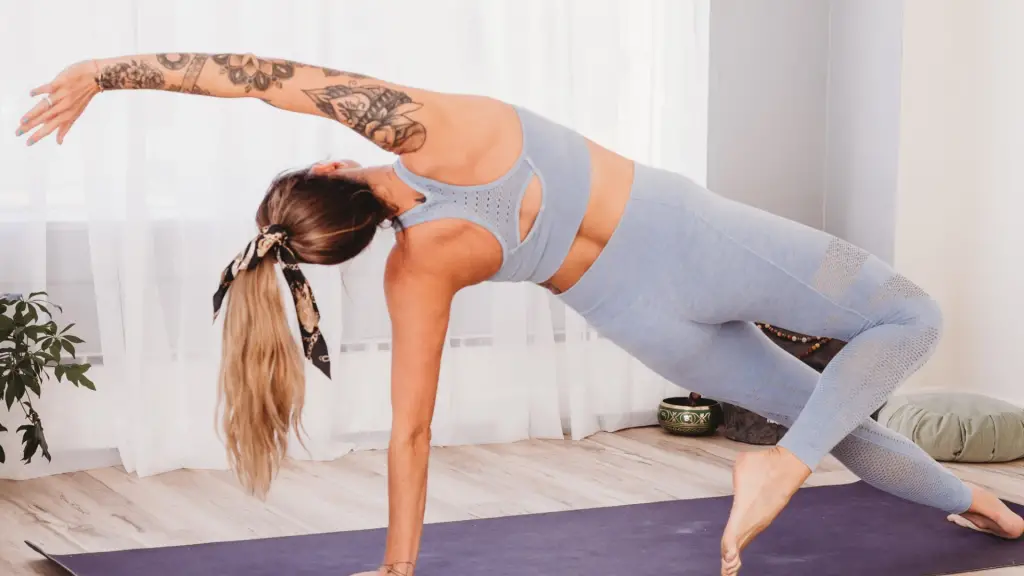Are you ready to create new habits and have the best life ever? That is fantastic news! Now, you need to choose what types of habits will benefit you the most. There is no One Way to classify habit types. Some would say there are three types of habits: productivity habits, physical habits, and mental habits.
On the other hand, the types of habits in psychology are often referred to as motor habits, intellectual habits, and habits of character. I created five types of habits that correspond to an area of change for wanting to get started: morning habits, daily habits, physical health habits, mental health habits, and evening habits. Each type includes a variety of examples from which you can pick.
5 Types of Habits With Examples
I categorized some practical daily habit examples into types of habits so that you can get a cursory look into the world of habits that will improve your life. Of course, many of the examples of habit types overlap! The main reason I categorized habits the way I did is that they represent common priorities that people may have, which makes it easy to focus on a smaller habit group. For example, you may decide to implement a morning or evening routine. Or, you may focus on habits that will specifically improve your physical or mental health.
1. Morning Habits
The first selection of habits involves how you start each day. They are often incorporated into a new morning routine, but you can start small with a simple morning habit.
Morning habits can set the tone for your entire day. Here are some examples of morning habits you can develop:
- Wake up at the same time every day: Waking up consistently can help regulate your body’s internal clock and improve your sleep quality. Fun fact: your body produces human growth hormones (HCG) during the first part of the night. You miss out on healing your body whenever you go to bed later.
- Drink water: First thing in the morning can help hydrate your body and boost your metabolism.
- Go outside for 15 minutes after daybreak: Getting bright light shortly after waking up may help you feel more alert.
- Exercise: I like to do my more demanding yoga flows in the morning and stretch in the evening. You may enjoy stretching in the morning and exercising later, whatever works!
- Meditate or practice mindfulness: Practicing mindfulness or meditation in the morning can help reduce stress and increase focus.
- Journal or write down your daily goals: Writing your goals or thoughts in the morning can help clear your mind and improve productivity.
- Review your schedule for the day: Does your schedule reflect your goals?
- Practice gratitude: Thinking about what you’re grateful for in the morning can help improve your mood and increase overall well-being.
- Take a cold shower: A cold shower in the morning can help boost circulation, improve your immune function, increase alertness, and improve mood.
- Read or listen to something inspiring: Reading or listening to inspiring content in the morning can help motivate and set a positive tone for the day.
Please don’t let this list overwhelm you! It’s not meant to give you a bunch of rules to follow to “live life right.” Instead, it’s meant to inspire you to try new habits. For more help with creating your morning routine, read How to Wake Up at 5 am and Create a Morning Routine.

2. Daily Habits
Here are some examples of daily habits you can develop that don’t necessarily fall under morning or evening routines (since we cover those as different types of habits). You may use the Daily Habits category if you aren’t sure where you want to start. You are not looking to implement a specific routine and don’t feel drawn to Physical Health or Mental Health Habits.
- Take breaks throughout the day: Short breaks throughout the day can help improve focus and productivity, reduce stress, and increase overall well-being.
- Stay hydrated: Drinking enough water throughout the day can help improve digestion, increase energy levels, and improve cognitive function.
- Practice good posture: Maintaining good posture throughout the day can help prevent pain and discomfort, improve breathing, and increase confidence.
- Take a walk: A short walk during the day can help increase physical activity, reduce stress, and improve mood.
- Practice deep breathing: Taking a few deep breaths throughout the day can help reduce stress, increase focus, and improve overall well-being.
- Practice kindness: Practicing kindness, whether it’s towards yourself or others, can improve mood, increase overall well-being, and improve relationships.
- Avoid multitasking: Focusing on one task at a time can increase productivity and reduce stress.
- Prioritize tasks: Prioritizing tasks based on importance and urgency can help increase productivity and reduce stress.
- Practice mindfulness: Reflecting on your thoughts, emotions, and actions can help increase self-awareness and improve overall well-being. Read Top 7 Reasons Why Mindfulness Is Important for more info.
- Practice active listening: Do you often zone out when listening to others? Engaging in active listening, focusing on the speaker, and providing feedback can improve communication, relationships, and overall well-being.
- Implement a self-care routine: Your self-care habits can be as simple as drinking a cup of tea while reading a book or taking a salt bath.
- Read out affirmations: Your words have power; use them wisely. Reading affirmations out loud is an excellent way to adopt some positive thoughts and behaviors.
- Take stock of your old habits: At first, when you decide to give up on old, unproductive habits, you will have to decide to avoid them consciously. Take inventory of those habits and examine yourself throughout the day to ensure you are not resorting to your old habits.
- Declutter your house: You might be surprised to experience how decluttering your environment can affect your mind.
- Practice good dental hygiene: Brushing your teeth is an apparent habit, but what about flossing or oil pulling? I started oil-pulling in the morning and enjoy how it makes my mouth feel.
Want more help with your habits? I created a 5-Day Yoga Habit Challenge to guide you in making good life habits and showing up daily on the mat for yoga.
3. Physical Health Habits
Among the types of habits, physical and mental health habits are closely related because your body and mind are connected. Read The Mind/Body Connection: How Your Emotions Affect Your Health to learn more. Here are some examples of physical health habits that you can develop:
- Move your body: Regular physical activity can help improve cardiovascular health, increase strength and endurance, and improve overall well-being. You don’t have to lift weights or do High-Intensity Interval training if you don’t want to! I used to and got way better results when I started doing yoga. My body is more toned and flexible than it was in my twenties! Interested? Read Starting Yoga at 40 or Later: Everything You Need to Know.
- Eat a healthy and balanced diet: Eating a diet rich in fruits, vegetables, whole grains, lean proteins, and healthy fats can help improve physical health and reduce the risk of chronic diseases.
- Get enough sleep: Getting enough sleep is essential for physical health, as it allows the body to rest and repair itself. The number of hours of sleep you get matters but you must also maintain a regular sleep schedule to optimize your body’s regeneration.
- Practice good posture: Maintaining good posture can help prevent pain and discomfort, improve breathing, and increase confidence. Read How to Improve Your Posture if this is a habit you want to work on.
- Practice good hygiene: Practicing good hygiene, such as washing your hands regularly and brushing your teeth twice daily, can help prevent the spread of illness and disease.
- Stay hydrated: Drinking enough water throughout the day can help improve digestion, increase energy levels, and improve cognitive function.
- Get regular check-ups and screenings: Regular screenings can help identify potential health issues early and improve overall health outcomes.
- Manage stress: Chronic stress can have negative effects on physical health, so developing strategies to manage stress, such as meditation or exercise, is essential.
- Limit alcohol and tobacco use: Excessive alcohol consumption and tobacco use can adversely affect physical health, so limiting or avoiding these substances is essential.
- Eat mindfully: Chew your food well, sit up straight, and think about what you are eating when you eat. This will help improve digestion and the bioavailability of the nutrients in your food. It turns out, you need to chew your bites 32 times!
- Eat a salad daily: I enjoy teaching this habit to maximize how much whole food my clients consume! My 5-Day Yoga Habit Challenge includes a Salad Blueprint to simplify this habit.
- Listen to your body: Too many of us live without ever paying attention to what our bodies are saying. We care about how we look, not so much about how we feel (unless it interferes with our productivity). Things like sluggishness, regular headaches, and food cravings are not natural! Learn to investigate the signs and symptoms your body is giving you.
- Practice intermittent fasting: Intermittent fasting is my number one method to stabilize insulin levels and monitor my appetite. I offer a free Intermittent Fasting Workshop if you want to learn more (hint: it’s not about skipping breakfast).
- Drink fresh juice: Caution: drinking fresh juices may not be beneficial before regulating your insulin levels. Instead, it may make you feel more hungry. However, after becoming metabolically flexible, fresh juices will fill you up and make you feel amazing! Read What Is Metabolic Flexibility and How It Can Help You Lose Weight for more info about metabolic flexibility.
- Take your vitamins: My bare minimum vitamins are vitamin D and the Power Shake (a whole-food multivitamin). You may have specific nutrient deficiencies to address. Consult with a healthcare provider to discover how to improve your well-being through supplementation.
Physical health habits will impact your mental health too, but next up, let’s focus on your mental health habits.

4. Mental Health Habits
Several mental health habits can help you maintain your mental well-being. Here are some examples:
- Exercise: Regular physical activity, such as jogging, walking, or yoga, can help improve mood, reduce stress, and boost self-esteem.
- Mindfulness meditation: Mindfulness meditation can help you become more aware of your thoughts and feelings and learn to respond to them more constructively.
- Set boundaries: Setting boundaries with others can help reduce stress and anxiety.
- Prioritize self-care: Taking time for oneself, such as taking a bath, reading a book, or getting a massage, can help reduce stress and improve mood.
- Eat a balanced diet: A diet rich in fruits, vegetables, whole grains, and lean proteins can help improve mood and energy levels.
- Get enough sleep: Getting enough sleep is crucial for maintaining good mental health. Aim for at least 7-8 hours of sleep each night.
- Practice gratitude: Focusing on what one is grateful for can help shift the focus from negative thoughts to positive ones.
- Seek social support: A supportive network of friends and family can help reduce stress and provide a sense of connection.
- Engage in hobbies: Engaging in activities one enjoys can provide a sense of accomplishment and improve mood.
- Seek professional help: If one is struggling with mental health issues, seeking the assistance of a mental health professional, such as a therapist or psychiatrist, can be beneficial.

5. Evening Habits
Establishing an evening routine can help you wind down from the day and prepare for a good night’s sleep. Here are some examples of evening habits that can be incorporated into an evening routine:
- Set a specific bedtime: Establishing a consistent bedtime can help regulate the body’s sleep-wake cycle and improve sleep quality.
- Avoid screen time: Limiting exposure to electronic devices such as phones, computers, and TV screens for at least an hour before bedtime can help reduce exposure to blue light, which can interfere with the body’s natural production of melatonin, a hormone that regulates sleep.
- Read a book: Reading a book or a magazine can help relax the mind and reduce stress.
- Practice relaxation techniques: Engage in relaxation techniques such as meditation, deep breathing exercises, or gentle yoga to help calm the mind and body.
- Take a warm bath or shower: A warm bath or shower can help relax muscles and prepare the body for sleep.
- Drink a cup of herbal tea: Drinking a cup of herbal tea such as chamomile, lavender, or valerian root can help promote relaxation and improve sleep quality.
- Reflect on the day: Take a few minutes to reflect on the day and practice gratitude. Writing down a few things that one is grateful for can help shift the focus from negative thoughts to positive ones.
- Prepare for the next day: Take a few minutes to plan and prepare for the next day. This can include packing a lunch, laying out clothes, or making a to-do list.
- Practice good sleep hygiene: Ensure the bedroom is cool, dark, and quiet. Use earplugs, an eye mask, or a white noise machine to create a conducive sleep environment.
- Practice self-care: Whatever that means for you. For me, it’s stretching. I could be a salts bath, your evening skincare routine, dry brushing, etc.
- Dim the lights: Avoid bright lights in your house two hours before bed. It will help improve your circadian rhythm.
- Turn off the lights: Turn off all the lights and ensure the bedroom is dark. This can help stimulate the production of melatonin, which can promote sleep.

How to Create Good Habits
Once you pick some habit examples from the types of habits in my lists, you are ready to get started. It is generally recommended to focus on creating one new habit at a time, rather than trying to create multiple habits simultaneously. Creating a new habit requires consistent effort and attention, and trying to make too many new habits at once can be overwhelming and challenging to sustain.
When you focus on creating one new habit at a time, you can give it your full attention and build momentum toward your goal. Once you have successfully integrated one new habit into your routine, you can create another one.
Of course, everyone’s capacity for creating and maintaining new habits is different, so it’s essential to be realistic about your abilities and limitations. Suppose you can handle more than one new habit at a time. In that case, you may want to experiment with creating multiple habits, but be sure to pay close attention to how you manage your time and energy, and be prepared to adjust your approach if necessary.
7 Proven Tips to Create Good Habits
Creating good habits can be challenging, but it is possible with consistent effort and dedication. Here are some steps you can take to create good habits:
- Start small: Instead of creating significant changes all at once, start with small steps. For example, if you want to exercise regularly, start with just 10 minutes daily.
- Set clear goals: Define what you want to achieve and how you will measure your progress. This will help you stay focused and motivated.
- Make a plan: Develop a plan for implementing your new habit. This could include scheduling specific times for your habit, setting reminders, or finding an accountability partner.
- Use positive reinforcement: Reward yourself for sticking to your new habit. This could be as simple as giving yourself a small treat or congratulating yourself for a well-done job.
- Stay consistent: Consistency is key when it comes to creating good habits. Stick to your plan, even when you don’t feel motivated.
- Be patient: Creating a new habit takes time and effort. Don’t expect overnight success. Keep at it and trust the process.
- Track your progress: Keep track of your progress and celebrate small wins. This will help you stay motivated and on track.
Remember, creating good habits is a process that requires effort and commitment. But with persistence and a positive mindset, you can build habits that will help you reach your goals and improve your life.
In Summary
As you look at the types of habits I provided, don’t feel like you have to limit yourself to one group. I wanted to facilitate the implementation of good habits by helping you pick an overarching goal. In the end, the practices you select will be the ones you believe will most likely benefit you quickly. It will depend on your life goals, your current struggles, and your current good habits. Your habits will have a massive impact on your life! It’s worth taking the necessary time to evaluate them and make an effort to choose them mindfully.





